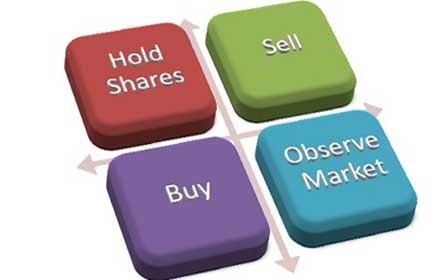
CAISSA Investments: Market Update
CAISSA Investments: Market Update | March 2017
The market is UP – should we sell?
The market call we made a year ago has come to fruition in a very positive way. While the first part of 2016 started off quite rocky, we urged our clients to stay invested as we saw a fair amount of upside to the market with the economic recovery and a fair bit of accommodative global fed-like policies.
We have seen a significant spike in wage based inflation, which is a solid factor to the Fed raising interest rates in March. We had a very good jobs report earlier in the month that may have solidified the Fed’s ability to hike rates .25%.
While we are getting very close to being fully valued, if not already, we feel the retail market is underestimating earnings growth this year as well as a few other areas that aren’t baked into the cake yet. While the valuations are running a bit over their skis and the investor has to pay a bit of a premium to get into this market, we think the premium is valid. The investor is hard pressed to find returns in many other places so stocks should be trading a little on the expensive side. Our advice is to stay invested but make sure to make selective trimming of areas that are getting more ahead of themselves than others. We have been pealing a little off the top of the almost 4-5% growth our portfolios have had year-to-date, and re-balanced.
We’ve also noticed that in recent months it is NOT the index funds that are faring well, but instead the active managers who are picking up steam. When the rubber hits the road, all ships do not rise with the tide and selective stock picking will be the winning strategy.
We are also contemplating a rise in allocation to international markets in developed or high yielding areas. This is an ongoing topic for our investment committee on ‘when’ that will happen.
The good news is that we are seeing a lot of money starting to come out of cash sitting on the sidelines. We will continue to watch as we move forward to navigate the markets. We look forward to the wild swings as that provides us opportunities for investment – not a penalty for our long term investors.
Frequently Asked Questions
Below are some questions that we are commonly getting and how we are answering them with our knowledge of historical market returns and economic indicators we research daily:
- Do we think the market is greatly overvalued and should we sell to cash? Currently we do feel the market is becoming fully valued in certain asset classes and getting ahead of itself in other asset classes like Mid Cap Value and Small Cap Value. While this is a time to trim your winnings, we do not see it as a time to retreat yet. There is still upside to the market that we feel has not yet priced in. That upside will be met with much volatility throughout the next 24 months though.
- What are historical returns when markets have been at valuations we are seeing today (Current P/E of 16.9)? HISTORICALLY, the subsequent 1 year and 5 year return at this point of stock valuations has been mid to high single digits.
- What were the best and worst performers of 2016? The best sectors to be in were Energy and Financials with the worst being real estate, health care and consumer staples. However, if you timed health care correctly and invested after the election, you faired very well!
- Should we get out of the market before the volatility hits? We try to remind our clients that for the past 36 years in the market there have been average intra-year dips of -14.2% annually yet our annual returns were positive for 28 of those 37 years. The trouble with trying to get out ahead of volatility is that you need to have a crystal ball be correct…. Twice. You have to know when to get out and when to get back in. Studies prove to us that market timers mostly likely lose because they missed one of the best trading sessions of the year or missed the bounce. It is always best to stay invested but to maintain a balance. We have spent the early part of this year taking our first few months of “winnings” off the table and redeploying them to more hedged strategies.
- You mention you are investing in hedge strategies, aren’t those scary? There is a difference between ‘hedge fund managers’ and an investment that ‘hedges’ the market. We are investing in the latter and are using those investments to dampen volatility of a market decline while participating in the upside. These investments are not at all like the naughty (and there are also good ones!) ‘hedge fund managers’ you hear about in the nightly news.
- The Fed just raised interest rates another .25%, wouldn’t we want to buy bonds? It would actually be a BAD time to buy into corporate bonds because as rates increase, the face value of your bond would decrease. This is because another person could buy bonds at a higher rate than yours – meaning your bond is less desirable. Conversely; according to research, the stock market actually has a positive correlation with rising rates until the 10 year treasury hits about 5%. The 10 year Treasury is around 2.5% today so this would tell us that the stock market still has the ability to rise.
Author: Kelly Pedersen